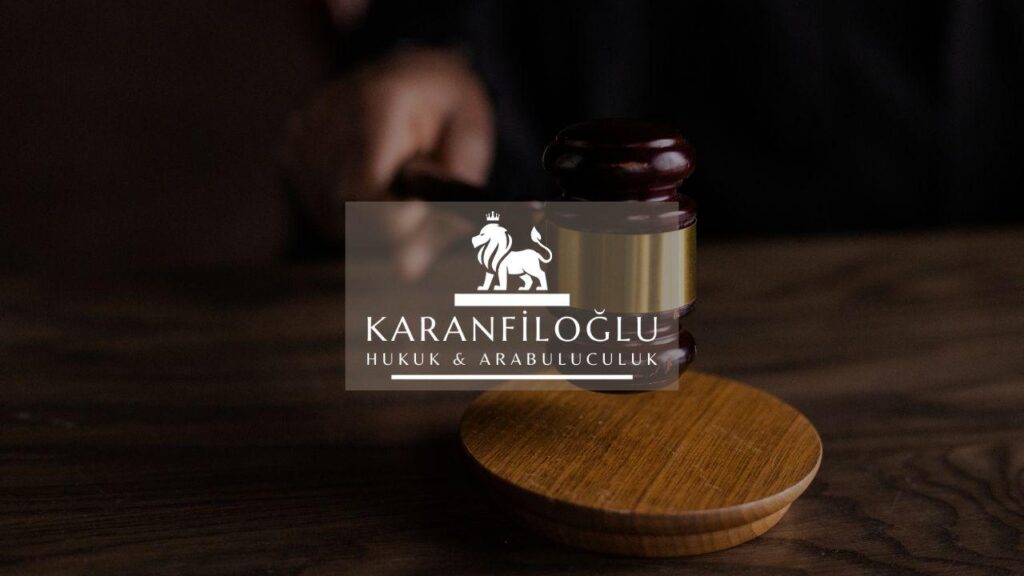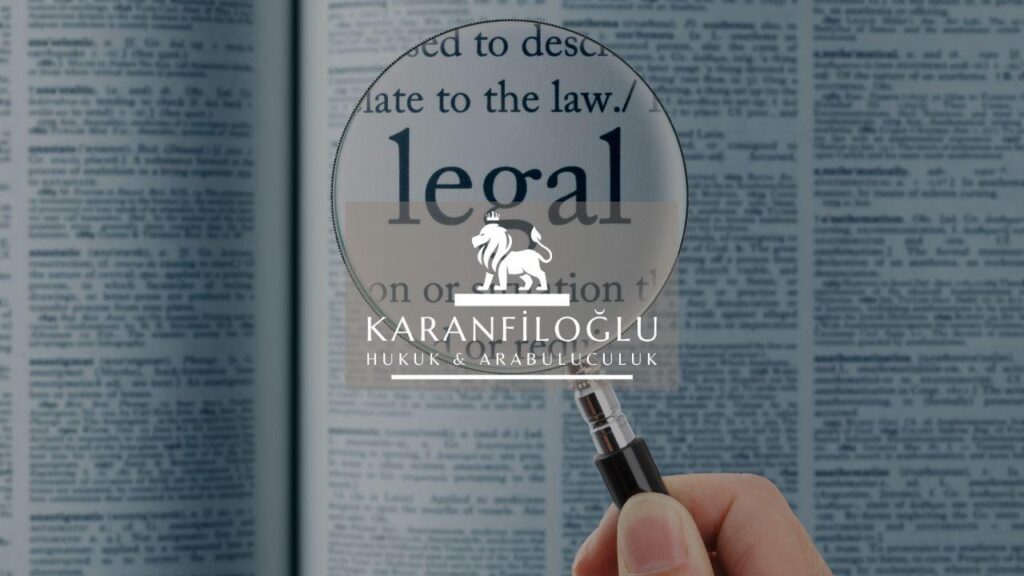Navigating the intricacies of inheritance law can be a challenging and emotional task, particularly in a country with as rich and complicated a legal framework as Turkey. At Karanfiloglu Law Office, we recognize the importance of understanding the specifics of Turkish inheritance law to safeguard your assets and preserve your family’s legacy. Whether you are drafting a will, facing a dispute over an estate, or need guidance on the legal mechanisms for transferring property, our experienced team is equipped with the expertise and sensitivity required to provide comprehensive legal support. Our goal is to ensure that your rights and wishes are upheld with the utmost precision and respect in accordance with Turkish legal standards.
Legal Framework and Key Concepts of Turkish Inheritance Law
Turkish inheritance law is governed by the Turkish Civil Code, which provides a structured legal framework to address the distribution of a deceased person’s estate. Central to this framework are key concepts such as statutory heirs, forced heirship, and reserved portions. Statutory heirs include close family members such as spouses, children, and parents, who are entitled to a share of the estate by law. The principle of forced heirship ensures that certain heirs, usually direct descendants and surviving spouses, cannot be entirely disinherited and are guaranteed a minimum reserved portion of the estate. This legal structure seeks to balance the deceased’s testamentary freedom with the protection of the family’s economic interests, ensuring that the surviving family members receive their lawful entitlements.
The Turkish Civil Code also provides specific mechanisms for the distribution and settlement of an estate. Upon the death of the individual, the estate is immediately transferred to the statutory heirs by operation of law, a process known as “inheritance in kind.” This means that all rights and obligations of the deceased, including assets and liabilities, are automatically inherited. It is mandatory for heirs to undertake certain legal procedures, such as obtaining a certificate of inheritance from the courts, which officially recognizes their status. Furthermore, heirs have the right to accept or renounce the inheritance within three months of becoming aware of their inheritance rights. Renunciation is particularly relevant in cases where the estate is encumbered with significant debts, shielding the heirs from financial burdens. This structured process ensures that the distribution is carried out smoothly, respecting both the legal rights and the wishes of the deceased.
Understanding the nuances of Turkish inheritance law is crucial when dealing with cross-border estates or international inheritance cases. If a foreign national owns property in Turkey or a Turkish national holds assets abroad, the principle of reciprocity and international treaties come into play. Turkish law generally respects the inheritance laws of the deceased’s home country, provided that it does not contravene Turkish public policy. For instance, if a foreign heir is entitled to inherit property in Turkey, they may be required to navigate both Turkish legal procedures and those of their own country. Karanfiloglu Law Office has extensive experience in managing such complex scenarios, ensuring that all international and local legal principles are meticulously observed. Our team is adept at orchestrating the necessary legal steps to seamlessly execute cross-border inheritance processes, safeguarding the interests of our clients on both ends.
Inheritance Procedures and Obligations in Turkey
In Turkey, the inheritance process begins with the determination of the deceased’s heirs and the division of assets according to Turkish Civil Code. Upon an individual’s passing, an official inventory of the deceased’s estate—known as the ‘tereke’—is compiled to identify all assets and liabilities. Subsequently, a certificate of inheritance, referred to as an ‘inheritance certificate’ (veraset ilami), is issued by a civil court or a notary, which formalizes the heirs’ legal rights to the estate. Heirs may be required to undertake specific obligations such as settling the deceased’s debts and paying inheritance tax, which varies depending on the relationship between the heir and the deceased. It’s crucial to adhere to these legal requirements to ensure a smooth transfer of assets and avoid any potential disputes. At Karanfiloglu Law Office, our experienced attorneys are well-versed in these procedures and can guide you through every step, ensuring compliance and protecting your interests.
One critical aspect to consider in Turkish inheritance law is the legal concept of “reserved portion” (sakli pay), which ensures that certain close relatives, such as children and the surviving spouse, receive a mandatory minimum share of the estate. This reserved portion is shielded from being fully disposed of by the testamentary dispositions of the deceased. Specifically, children are entitled to receive half of what they would have inherited under the legal distribution (statutory share), while the surviving spouse’s reserved portion can vary depending on whether there are descendants, parents, or other relatives inheriting alongside them. These provisions are intended to protect the financial well-being of close family members, limiting the testator’s freedom to distribute assets as they wish. Understanding the nuances of the reserved portion is essential, as failure to honor these entitlements can result in legal challenges and potential nullification of certain testamentary provisions. With comprehensive knowledge and expertise, Karanfiloglu Law Office can assist you in navigating these protections to ensure your estate planning aligns with Turkish legal requirements.
In addition to adhering to the regulations surrounding the reserved portion, it’s important to be cognizant of the legal implications for foreign nationals involved in inheritance matters in Turkey. Foreigners with assets in Turkey or Turkish nationals with assets abroad must navigate potential conflicts of law and jurisdictional issues. Turkish law generally allows for the application of the decedent’s national law to the distribution of movable property, while immovable property is subject to Turkish inheritance law. This duality can lead to complexities that require nuanced legal interpretation and proficient handling. At Karanfiloglu Law Office, our attorneys are adept at managing cross-border inheritance issues, ensuring that all legal and procedural requirements are meticulously met. We work diligently to protect our clients’ interests, offer clarity on potential conflicts, and provide strategic solutions to safeguard assets across multiple jurisdictions. Whether you are facing inheritance procedures domestically or internationally, our team is dedicated to offering comprehensive support tailored to your specific circumstances.
Dispute Resolution and Legal Rights in Turkish Inheritance Cases
Disputes over inheritance in Turkey can arise from various issues, such as questions over the validity of a will, unequal distribution of assets, or claims by statutory heirs who believe their legal rights have been infringed. Under Turkish law, statutory heirs include the deceased’s children, spouse, parents, and, in some cases, siblings, each of whom has a protected share that cannot be completely disinherited. When such conflicts emerge, the resolution typically involves negotiating settlements among the involved parties or taking the matter to court for a definitive legal judgment. At Karanfiloglu Law Office, our seasoned lawyers are adept at navigating these disputes, providing strategic advice and robust representation to ensure that our clients’ rights are protected throughout the legal process. Whether through mediation or litigation, our primary aim is to resolve inheritance disputes in a manner that honors the intentions of the deceased while respecting the entitlements of all heirs.
In Turkey, the inheritance process begins with the identification and classification of heirs, and the distribution of the deceased’s assets follows the relevant legal provisions. If a valid will is present, its stipulations are respected, provided they do not infringe on the statutory shares entitled to compulsory heirs. In the absence of a will, the estate is divided according to the Turkish Civil Code, which delineates a strictly hierarchical and pre-determined succession among relatives. Disputes frequently arise during this phase, often requiring meticulous legal intervention to examine the validity of claims, challenge forged documents, or interpret ambiguous provisions within a will. Karanfiloglu Law Office leverages extensive expertise in these matters to facilitate an equitable distribution of assets, ensuring each party receives their rightful inheritance, whether through amicable negotiations or court procedures.
Given the complexity and emotional nature of inheritance disputes, it is vital to have proficient legal support to navigate the layers of Turkish inheritance law efficiently. Karanfiloglu Law Office prides itself on a client-focused approach, meticulously examining each case to understand the unique elements at play and to craft personalized legal strategies. We assist our clients not only in protecting their rightful inheritances but also in mitigating potential conflicts among heirs through clear legal guidance and effective dispute resolution mechanisms. Whether you are facing a contentious inheritance dispute or simply seeking clarity on your legal rights and obligations under Turkish inheritance law, our dedicated team is committed to achieving fair and just outcomes. With Karanfiloglu Law Office by your side, you can be confident that your interests and the legacy of your loved ones are in trustworthy hands.
Disclaimer: This article is for general informational purposes only and you are strongly advised to consult a legal professional to evaluate your personal situation. No liability is accepted that may arise from the use of the information in this article.







